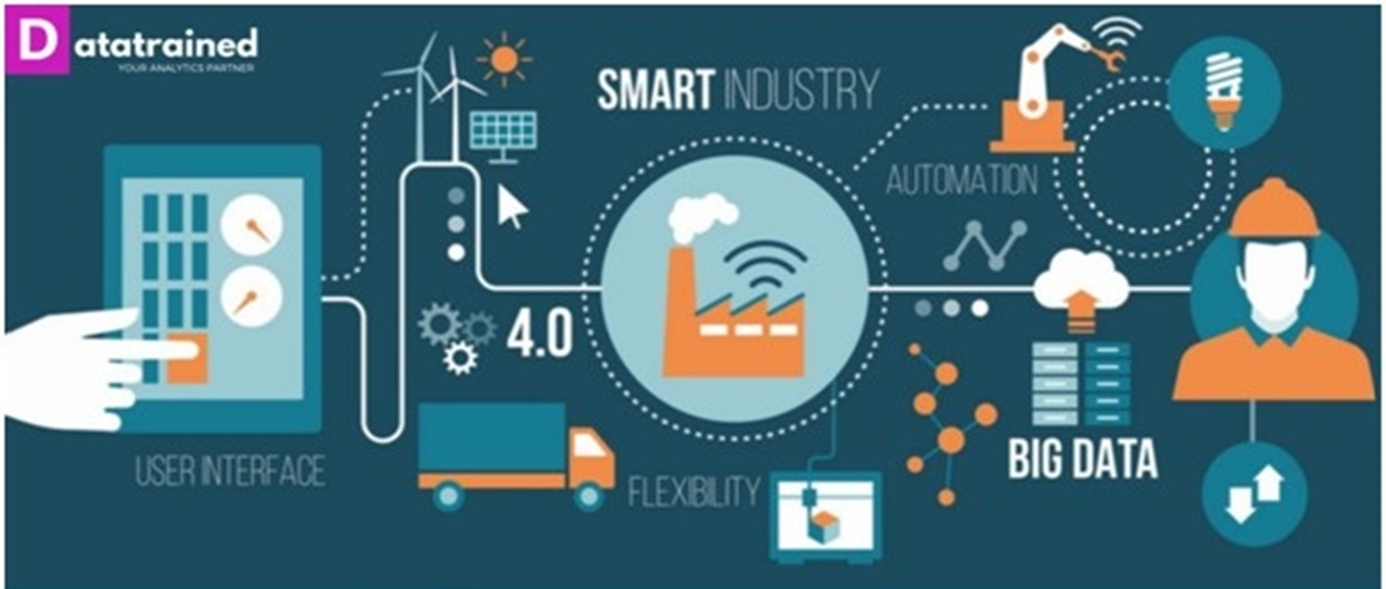+49 89 44 388 99 50
contact@smart-applications.com
Also use our contact form.
Data Science has gained prominence in the context of industry in recent years. Data Science is the combination of statistics, applied computer science, computing, communication, management, and sociology. It is based on ways of thinking and methodologies that make it possible to generate insights and knowledge as well as (to a limited extent) statements about the future based on data. The significance for the industry is enormous. A study by Grand View Research, Inc. states, "The global market size for smart manufacturing is estimated at $395.24 billion by 2025."
Below are three examples:
Predictive Maintenance: Unplanned downtime is the single largest contributor to manufacturing overhead costs. This has led to the introduction of technologies such as condition-based monitoring and predictive maintenance. Machine sensor data are continuously monitored to detect anomalies, diagnose failure modes, predict time to failure (TTF), and thus forecast optimal maintenance time.
Quality: In order to make quality predictable, methods such as "statistical process control" are used today. However, this only indicates whether a manufactured part is defective or not and is therefore reactive.
A proactive statement is provided by the application of statistical methods, such as linear regression over time. This can be used to answer the question, "How much time do we have before we produce bad parts?"
Sales Forecasting: Predicting future trends have always helped optimize resources for profitability. In manufacturing, early knowledge of production volumes helps optimize resources such as the supply chain, the coordination between machine and product, and workforce. Techniques used today to optimize resources range from linear regression models, ARIMA [2], to more complicated models such as LSTM [3].

In the areas of production and logistics, data analysis is becoming increasingly important to identify further optimization potential. Data Science is a discipline that requires an interplay between mathematics, computer science and the application domain. Data Science will play an increasingly important role in the process industry, where a large amount of data is traditionally available.
Resources:
Data Science Grundlagen - Grundlagen im Bereich Data Science (datenbanken-verstehen.de)
Data Science in Manufacturing: An Overview | R-bloggers [1]
Was ist Data Science? (bigdata-insider.de)
https://iiot-world.com/connected-industry/what-data-science-actually-means-to-manufacturing/.
Was ist das ARIMA-Modell? (bigdata-insider.de) [2]
Long short-term memory - Wikipedia [3]
Data Science Usage in Manufacturing Industry | Datatrained [4]
Thomas Barton, Christian Müller (2021). Data Science anwenden: Einführung, Anwendungen und Projekte. 1. Auflage. Springer Vieweg
Sandro Scheid, Stefanie Vogel (2021). Data Science: Grundlagen, Methoden und Modelle der Statistik. 1. Auflage. Carl Hanser Verlag
Uwe H. Kaufmann, Amy B.C. Tan (2021). Data Science für Einsteiger: Daten analysieren, interpretieren und richtige Entscheidungen treffen. Carl Hanser Verlag